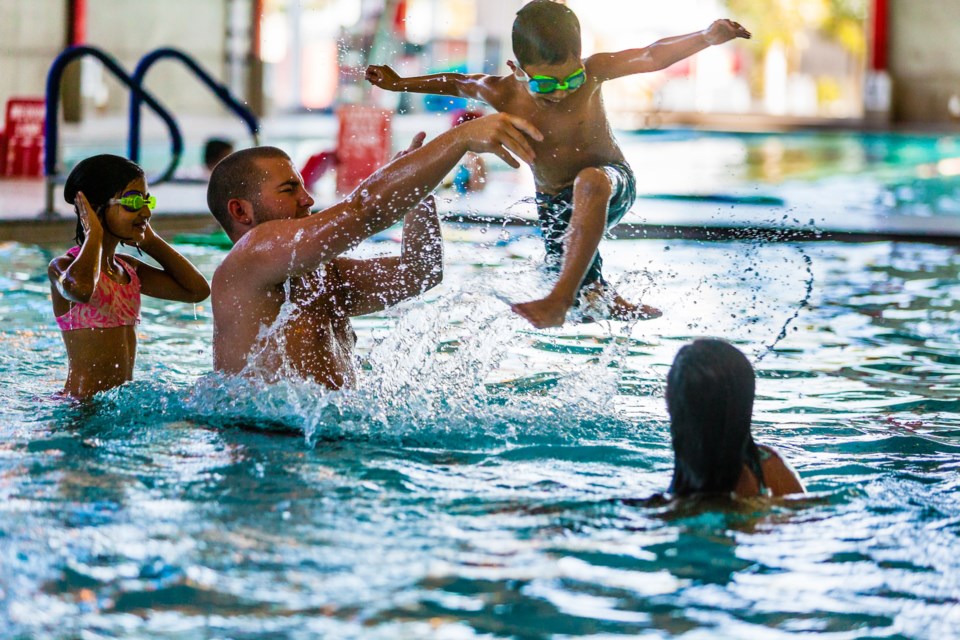NEWS RELEASE
YMCA OF SIMCOE MUSKOKA
*************************
The YMCA of Simcoe/Muskoka supports findings in the 2018 ParticipACTION report card on physical activity for children and youth. Released Tuesday, the report card gave Canadian kids a score of D+ for overall physical activity. This grade is particularly alarming considering that this year’s report card also highlights important connections between physical activity and kids’ brain health.
Only 35 per cent of five- to 17-year-olds and 62 per cent of three- to four-year-olds are getting the recommended physical activity levels for their age group, the report card found, and may be having an impact on the health of their brains – kids may be less attentive, moody and not meeting their full potential both in and out of the classroom.
“Regular physical activity, even in short bursts, can help kids’ brains on many levels,” said Dr. Mark Tremblay, chief scientific officer, ParticipACTION Report Card and director of the Children’s Hospital of Eastern Ontario Research Institute’s Healthy Active Living and Obesity Research Group (CHEO-HALO). “Kids who are more active have increased self-esteem and are generally more focused and less stressed compared to their less active peers. For example, students who exercise before a test show stronger brain function than those who don’t. Furthermore, kids with brain-based disabilities, such as autism spectrum disorder or ADHD, may experience even greater improvements in learning and thinking as a result of regular physical activity.”
This year’s report card was released in concert for the first time with an evidence-informed expert statement on physical activity and brain health in children and youth. The expert statement was developed by a team of pediatric neuroscientists, exercise scientists, clinicians and practitioners. It finds that for better brain health – including cognition, brain function and mental health – all children and youth should be physically active on a regular basis.
“Across Canada, most children do not meet recommended levels of daily physical activity. Rising rates of obesity, related chronic disease and mental illness tell us that getting kids active should be a top priority for parents, schools, and all Canadians,” says Karen Pulla, vice president of health, fitness and aquatics, YMCA of Simcoe/Muskoka. “We know first hand that exercise is one of the most effective ways to improve mental health and we fully support the findings in the 2018 ParticipACTION report card. Helping kids grow in mind, body and spirit is our top priority and we will continue to make physical activity accessible to all families in our communities.”
The lowest grades in this year’s report card are a D+ for overall physical activity, D for sedentary behaviours and F for the 24-hour movement behaviours. Despite common knowledge of the health benefits of kids moving more and turning away from screens, most of them aren’t, but now they have another pressing reason to do so – for their brain health.
“In order to help support the development of strong, healthy brains we need to encourage kids to get enough daily heart-pumping physical activity,” said Elio Antunes, president and CEO, ParticipACTION. “Research shows that active kids perform better in school and are generally happier. We need to be active role models and set kids up to succeed. I understand that modern life can get in the way of making the time to get active, but I encourage all families to try. And, get outdoors more because it is a powerful antidote for kids facing stress.”
Other grades assigned in the report card include:
• D for active play and leisure activities
• D- for active transportation
• B for organized sport participation
• C- for physical education
• B+ for sleep
• D+ for physical literacy
• D for physical fitness
• C+ for family and peers
• B- for school
• B+ for community and environment
• C+ for government
To download the 2018 ParticipACTION report card highlight report, including the expert statement, or full report, please visit here.
For recommendations and programs on how to increase kids’ physical activity and improve brain health, please visit here.
*************************



